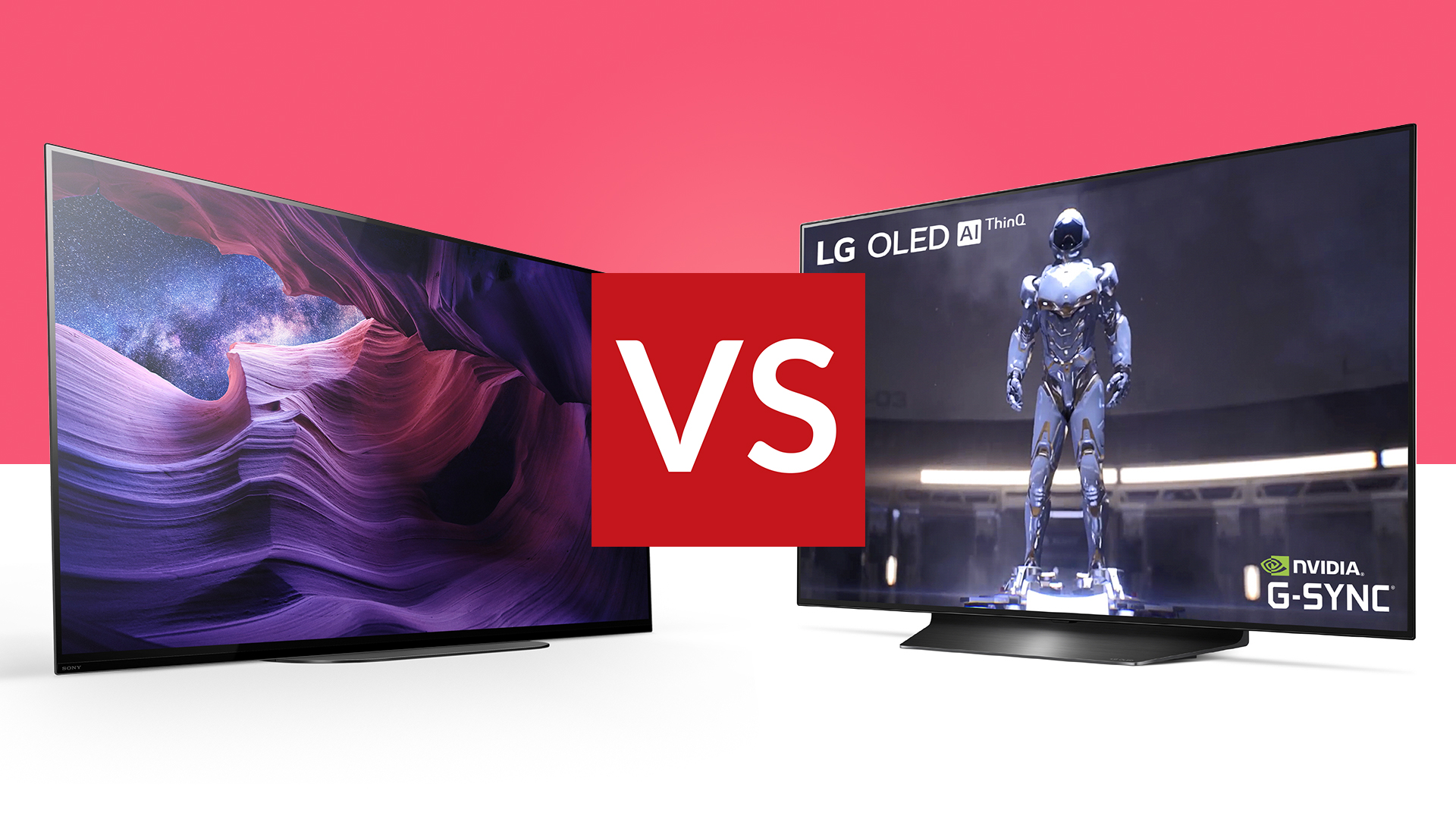
In the battle of 48-inch OLED TVs, it's, LG vs Sony, A9 vs CX. Welcome to the ultimate small OLED TV fight.
This is a contest between two of the best OLED TV prime middleweight contenders, the LG OLED48CX and Sony's KD-48A9 (known as the XBR-48A9S in the US). Which screen gets its pixels pounded, and which one will have its stand raised at the end?
OLED TVs have always come in fairly big sizes, but if your home is approximately the size of a shoebox, going big on a TV is the equivalent of actively choosing the front row at the cinema. It's too much, and you'll end up with a pain in your neck.
Sure, bigger TVs are highly luxurious, but there's a reason LG (which makes the panel in both of these TVs) has expanded its panel production to hit that magical 48-inch diagonal: it means cheaper, lighter TVs that don't take up half of your living room.
Given that they use the same screen hardware, you might not think there's much to separate the CX and A9. But there can be some pretty significant differences beyond the screen itself, so we'll pit these mini-monsters against each other and find out which roars the loudest.
- Is LG's BX a better choice for you than the CX? Find out: LG BX vs CX
- Looking for Amazon Prime Day TV deals for the UK?
- And the best US Amazon Prime Day TV deals
- Meet the best TVs of all kinds
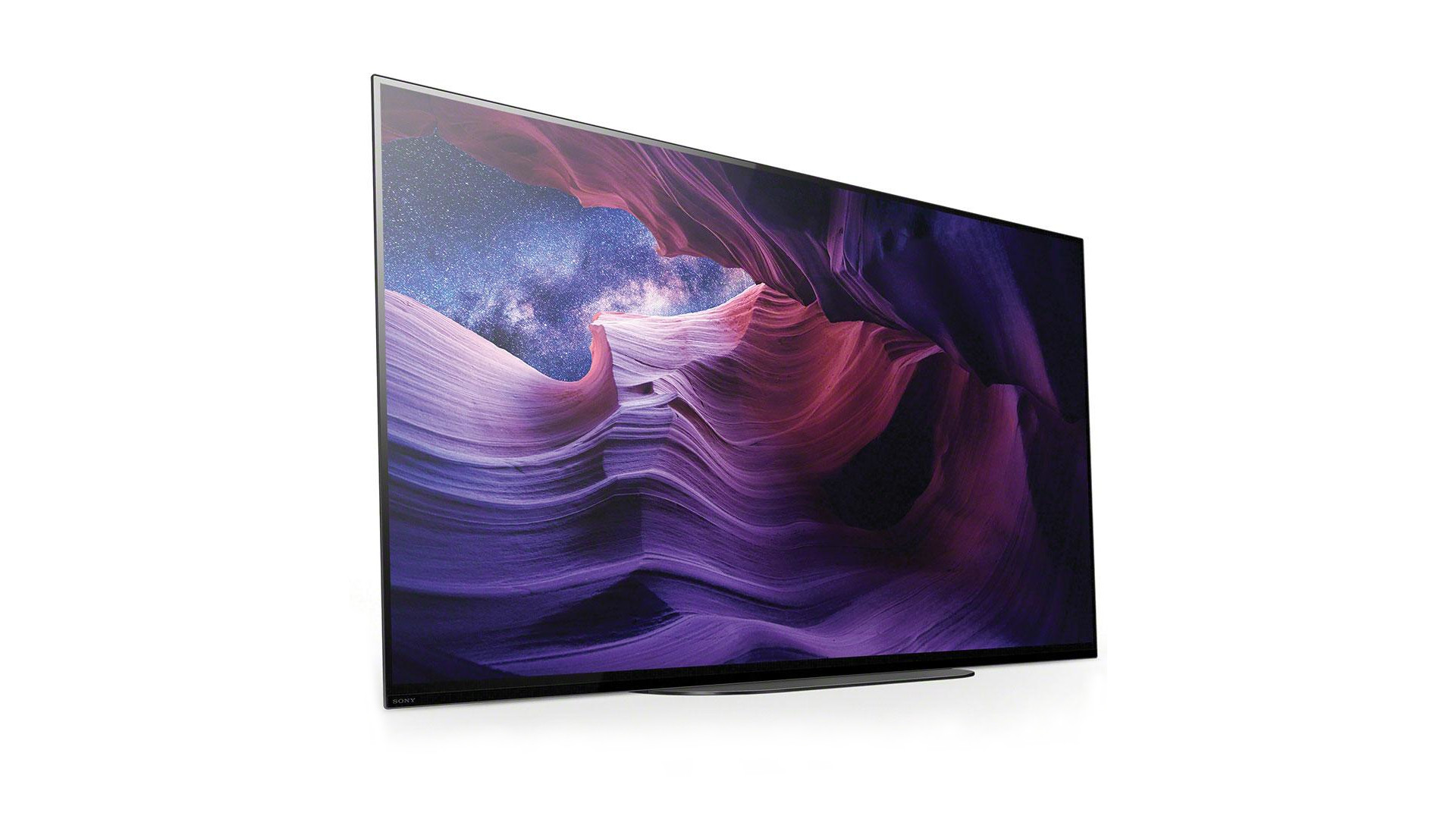
Sony A9 48"
LG CX 48-inch vs Sony A9/A9S 48-inch: Price
Is it too cynical to suggest that LG's ownership of the factory that makes OLEDs helped the company gain something of a foot up in the price department? Probably not. It was first to market with a 48-inch OLED, and managed to release it with a totally affordable MSRP (at least compared to most other OLEDs) of £1,499/$1,499. That puts it perilously close to many LED TVs that can't manage the same contrast range that OLED can.
For the A9, Sony has been forced (or chosen) to drop it at the significantly higher mark of £1,799/$1,799. That gives it the loss in this category, though Sony will be hoping that some extra tech it's added elsewhere will tempt you to spend the additional cost. That said, Sony is actually lacking some features here, which we'll come to…
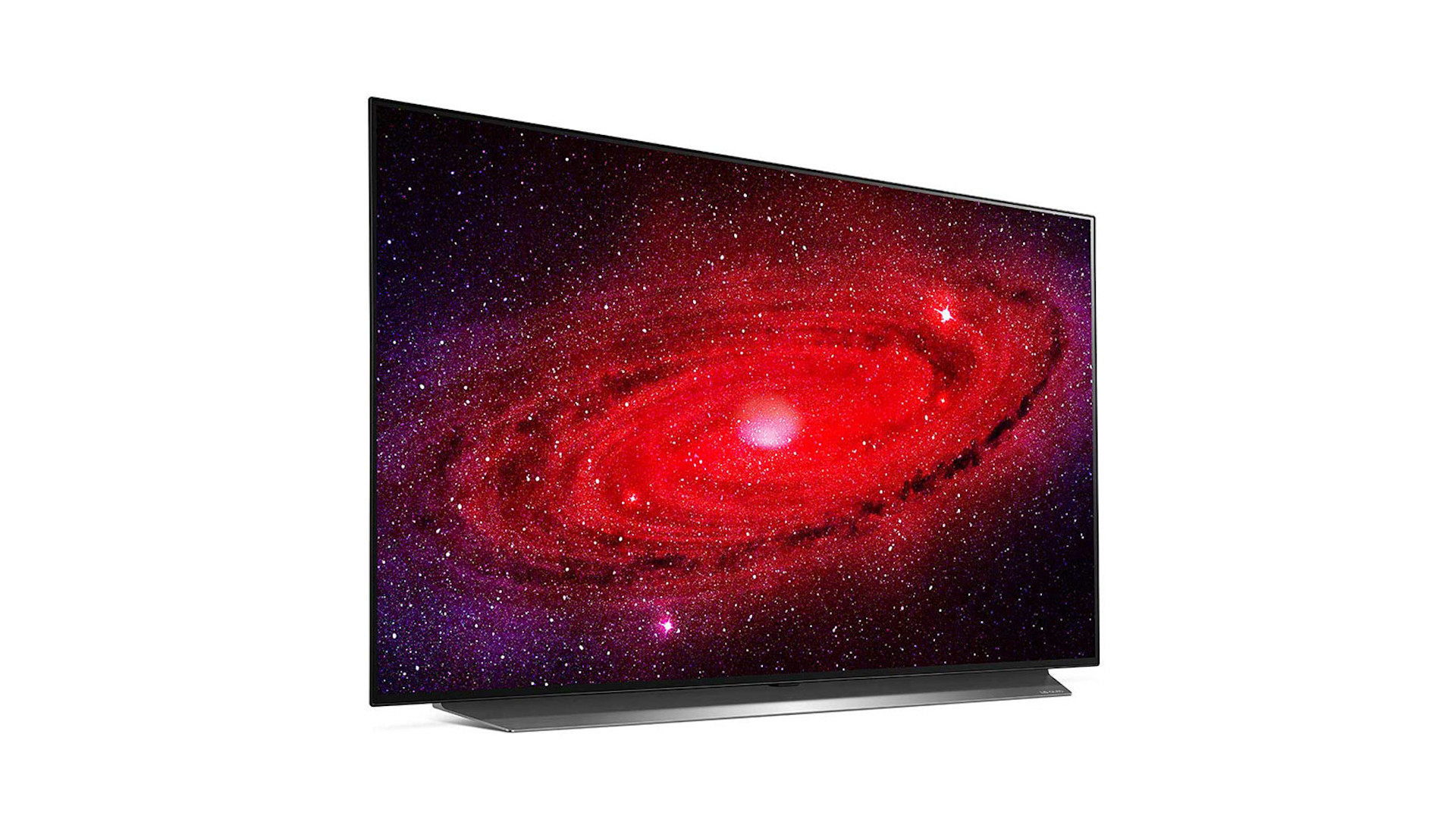
LG CX 48"
LG CX 48-inch vs Sony A9 48-inch: Design
The fight here is pretty much a mirror match of big rectangles with minimal bezels; each is a modern TV that'll look great on a stand or on a wall. It may have a slightly bigger chin, but we'll give an extra half mark to Sony for its sexier base and lower ground clearance.
The A9's belly-down pose is possible because it doesn't have to make room for audio to blast that way. Instead, it utilises Sony's neat Acoustic Surface tech, which turns the screen itself into a big speaker and means audio emits from the point where it's supposed to actually come from, rather than from a point slightly away from the main action.
It means that the Sony is far superior for audio quality, and is good enough to replace needing a basic soundbar, which is a big part of justifying its higher price. With the LG CX, if you're wanting sound as rich as the visuals, you'll need a speaker upgrade, stat.
LG CX 48-inch vs Sony A9 48-inch: Interface
This is a battle of two well-established interfaces, each decent in their own ways. LG employs, as it always does, its own webOS operating system, which is an unfussy and slick bit of software. It's easily voice driven, packing LG's own ThinQ AI for easy navigation around its various functions, alongside support for both Google Assistant and Alexa.
The A9 features Android TV, which (predictably) cuts the voice assistant choice down to only Google Assistant. The latest version of Android TV feels a lot smoother than those which went before, includes support for a raft of add-on apps, and includes a bunch of stability fixes too.
We'd say that LG edges the win, but it's realistically a personal preference thing rather than webOS being comprehensively 'better' than Android TV.
In the UK, neither is especially strong for UK catch-up TV apps, but both are really good for streaming app support overall.
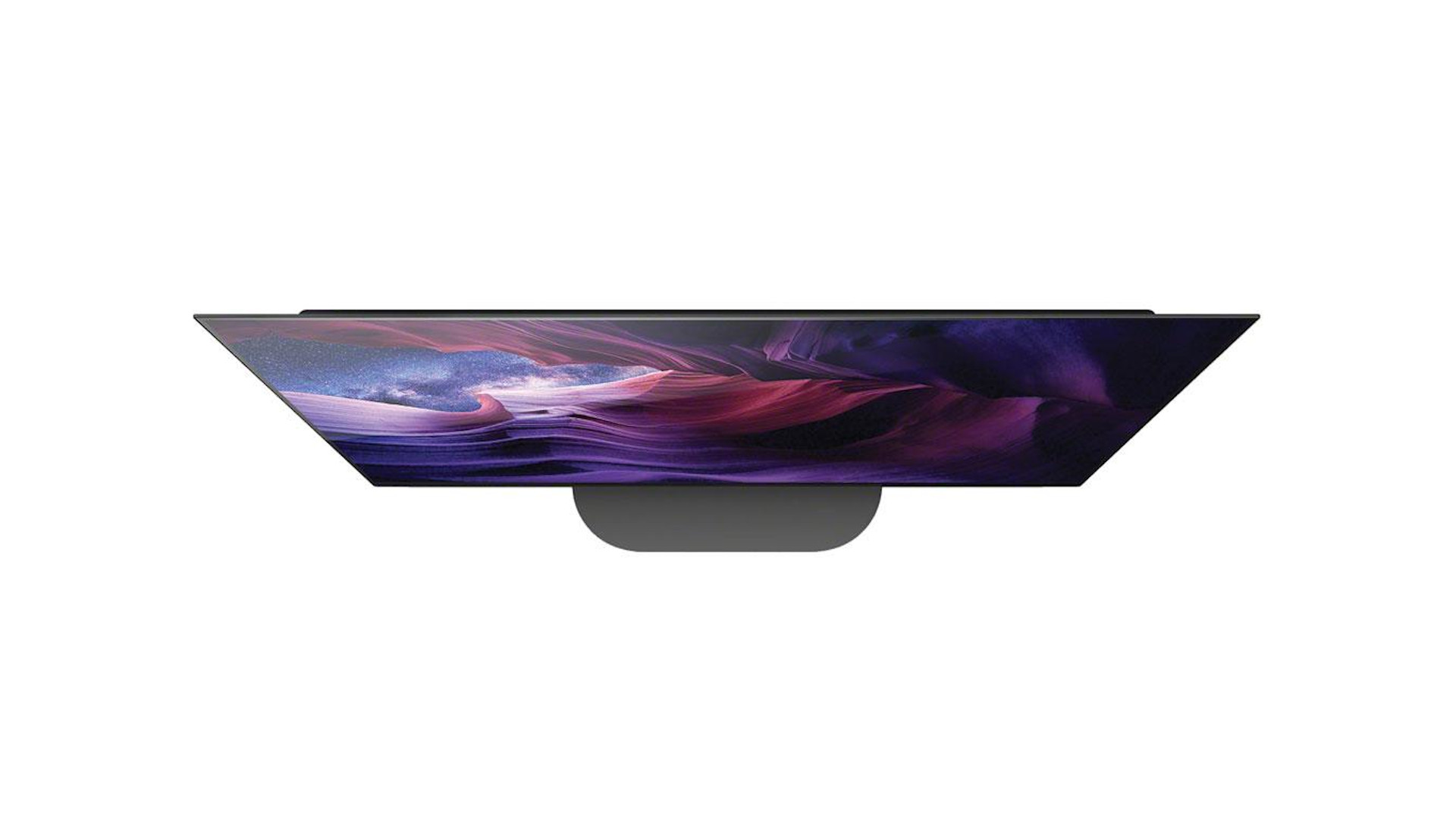
Sony A9 48"
LG CX 48-inch vs Sony A9 48-inch: Picture processing
It is not hard to argue the processor's importance when it comes to modern TVs, particularly in the OLED space where every manufacturer shares the same core hardware. The package of processor and firmware is what determines how well that OLED panel is driven, and how well the TV interprets the raw data it's fed. Neither of these TV is a slouch when it comes to pixel-pushing.
Sony includes its Picture Processor X1 Ultimate chip in the A9, the same chip that's in charge of the company's 8K range, which means this has a fair bit of processing overhead to play with, and it's a step up from the X1 Extreme that lingers in some of Sony's 2020 range. The X1 Ultimate has some serious upscaling and HDR remastering chops, as well as object-based detail enhancement.
LG has thrown in its latest and greatest processor, the third-generation A9, so this gets the full force of LG's processing capabilities, with a slew of AI picture processing tricks serving it very well indeed.
LG includes Filmmaker Mode as part of the CX range, which actually switches off a lot of its processing so that the image you see is as close as possible to that which the content creator intended; Sony, on the other hand, is so confident in its own picture expertise that it does not include Filmmaker mode, though it does support Netflix Calibrated content.
Sony's processing is slightly better with motion, so for sports fans in particular the A9 may be preferable. But generally they're incredibly close, with difference more being about the specific approach than the quality.
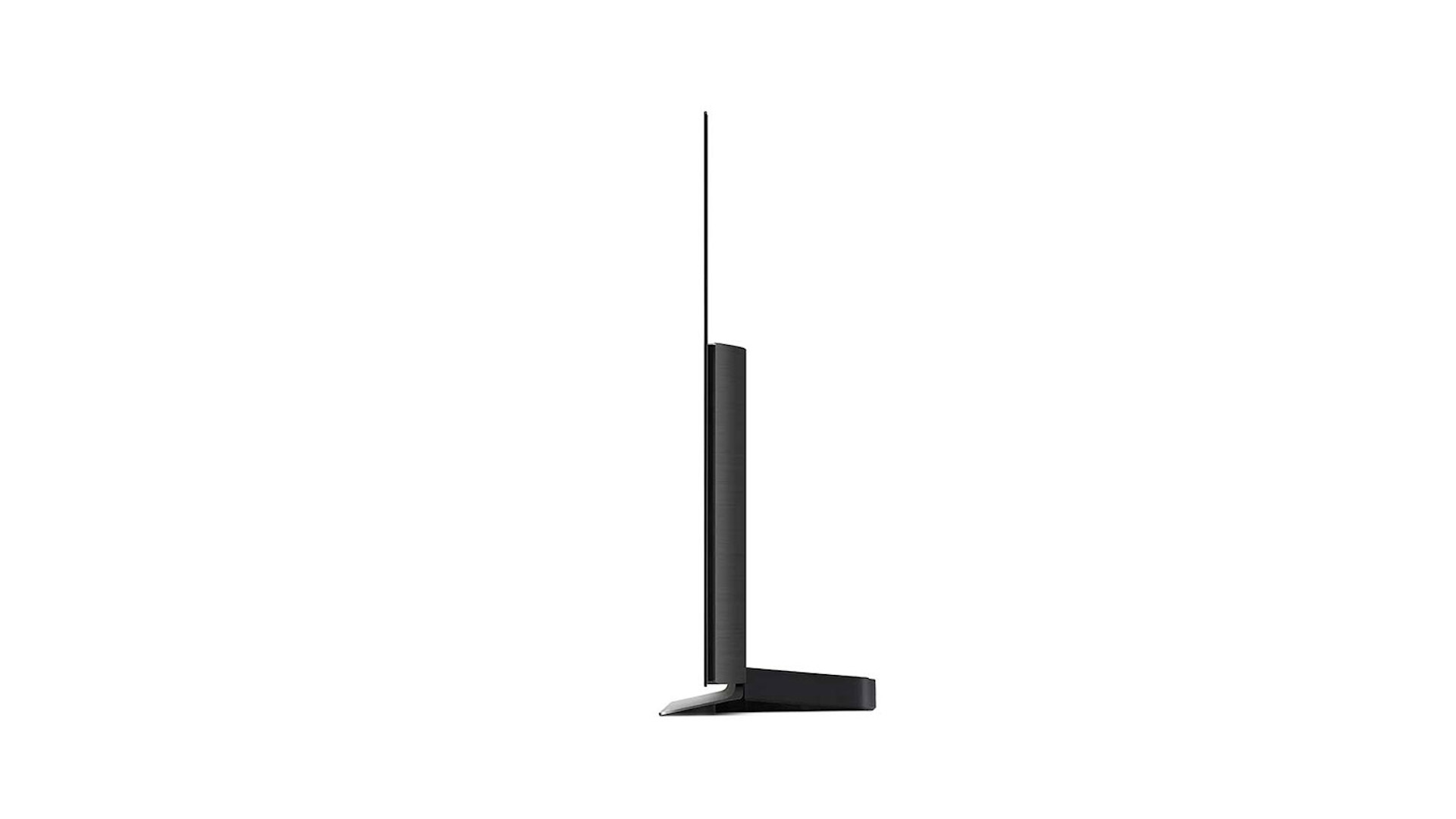
LG CX 48"
LG CX 48-inch vs Sony A9 48-inch: Format support
Both TVs include support for HDR10, HLG and Dolby Vision content. Neither includes support for HDR10+, a competitor to Dolby Vision. Dolby Vision is more widely used than HDR10+, so if we have to have one then we're happy they include Dolby… but some TVs include both, so we really wish that were the norm for flagships.
LG does score a win here with its extra HDR functionality, building in Dolby Vision IQ which adjusts the picture to match the light levels in your room. It's a good, useful feature, but it's not dealbreaker than the Sony doesn't have it.
When we're looking at what you might be able to plug in, things swing more towards LG, though. The South Korean giant includes support for several HDMI 2.1 features on all of its ports, with support for variable refresh rates including on PS5 and Xbox Series X (plus GSync and FreeSync compatibility for PC), and the ability to receive 4K video at 120fps.
Sony doesn't include those things at all, despite making the PlayStation 5, a games console that supports both those features. Oh, and also despite claiming the A9 is 'Perfect for PlayStation'. Sure, the A9 is no slouch in the response time department for gaming, but it can't hope to compete with the CX in the gaming space overall.
LG CX 48-inch vs Sony A9 48-inch: The verdict
So, which should you buy? In most categories, the answer is 'either': both the CX and A9 are masterful TVs with the full weight of their manufacturer's respective processing packages inside. They're stunning and reasonably-sized entry points to the rich and sharp world of OLED, and likely a huge step up from whatever mid-size screen you already own.
But some things are more important than others. Presumably you're not shopping for a 48-inch TV that's going to last you a year and then end up on the scrapheap. As nice as Sony's A9 is, we have to steer you towards the LG CX because it's the only one of this pair that's up to speed on its connectivity.
The HDMI features it includes have the potential to be so pivotal over the next few years that, even if you have no interest in gaming, LG's screen is the one to own. The fact that it comes in much cheaper at the same time is just a bonus.
If you're a Sony fan, you won't be unhappy with the A9 for what it offers, and the better sound quality is definitely a good thing – but sound can be upgraded later by adding one of the best soundbars. The built-in connections can't.
Get all the latest news, reviews, deals and buying guides on gorgeous tech, home and active products from the T3 experts

T3 magazine's own Gadget Guru is a 25-year veteran of the tech writing wars, and has the scars to prove it. He's written for the UK's biggest technology publications, and knows everything from smart doorbell voltage needs to how to bend Windows to his every whim.
